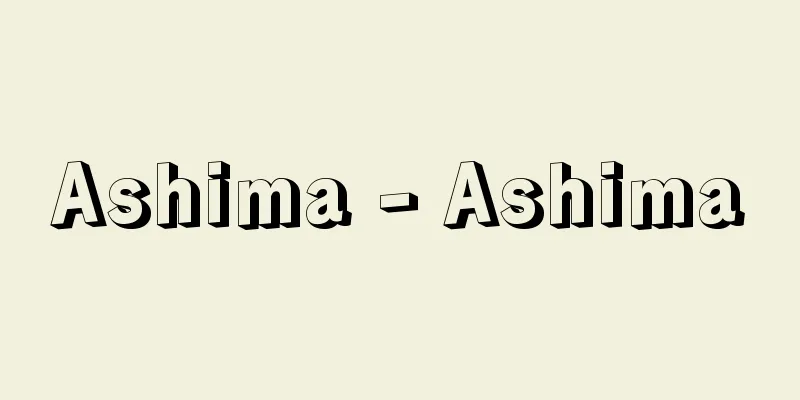Stone Woman - Birthless

|
A word used to refer to a woman who does not give birth. It is also written as "fushou-onna". They are called "ishi-onna", "karao-onna", "ki-onna", "kinyobou" and "medo (hole) nashi" and were not well received in a society where raising successors was considered the most important thing. It was said that if there was a "ishi-onna", the village would die out or wither, and in Toki District, Gifu Prefecture, it was said that one tree at a shrine would wither every year. In Niwa District, Aichi Prefecture, "ishi-onna" was called "kimusume", and it was said that a man's body would gradually weaken after marriage. In Yatsuka District, Shimane Prefecture, there were places where women who were not menstruating and did not have children were disliked living in the east of the village. There was a saying that "Marry for three years, and leave without children," and in many places, if a woman was married for three or seven years and did not have children, it was considered grounds for divorce. There were also places where it was disliked for "ishi-onna" to attend weddings. In Yoro District, Gifu Prefecture, it was said that urinating by the roadside would cause the grass and trees to wither immediately, as it was believed to bring about impurity. In Kuga District, Yamaguchi Prefecture, it was said that if a woman called out loudly in early summer when the cuckoo was singing, she would become a stone woman, and so women tried to avoid going outside during this season. There are also the following legends about stone women: If a childless person sits behind a pregnant woman, they will have a child. If you step on the placenta of a person who has just given birth while it is still warm, you will become pregnant. Also, if you raise a child that you have adopted, such as a seed, you will be blessed with a child. It was also said that it would be good to eat the rice you eat after giving birth without anyone knowing. In parts of Kagawa Prefecture, the age of 47 for a woman is called umijimai, and the age of 61 for a man is called mekusarego, and these were considered the limits at which a person could have a child. However, these legends about stone women have no scientific basis, and moreover they attribute childlessness solely to the woman; they are nothing more than superstitions that arise out of people's desire for children and their dislike of stone women. [Oto Tokihiko] Source: Shogakukan Encyclopedia Nipponica About Encyclopedia Nipponica Information | Legend |
|
子供を生まない女性をさして使われたことば。不生女とも書く。イシオンナ、カラオンナ、キオンナ、キニョウボウ、メド(穴)ナシなどといわれ、後継者育成を最重要事と考える社会では、よく思われなかった。石女がいると村が絶えるとか、枯れるとかいわれ、岐阜県土岐(とき)郡では、神社の木が毎年1本ずつ枯れるといわれた。愛知県丹羽(にわ)郡では、石女をキムスメといい、結婚すると男はしだいに身体が衰弱するといわれた。島根県八束(やつか)郡では、月事がなくて子をもたない女が村の東に住むことを嫌う所があった。「嫁して三年、子なきは去る」などといわれ、結婚して3年または7年して子ができないと、離婚の理由とされた所がかなりあった。また、石女が婚礼の席に出るのを嫌う土地もあった。岐阜県養老郡では、穢(けがれ)があるとして、路傍で小便をすると草木がたちまち枯れるといわれた。山口県玖珂(くが)郡では、ホトトギスが鳴く初夏のころ女子が大声で人をよぶと石女になるといって、この時季には女はなるべく戸外に出なかったという。また、石女については次のような言い伝えもある。子供のない人が妊婦の座ったあとへ座ると子供ができる。子供を生んだ人の胞衣(えな)のまだ暖かいうちにそれを踏むと、妊娠するようになる。また種子(たねご)などといって、もらい子を育てると子供が授かる。人に知られないように産飯(うぶめし)を食べるとよいなどともいわれた。香川県の一部では、女の47歳をウミジマイ、男の61歳をメクサレゴといって、これが子をもてる限界とされていた。しかし、これらの石女に関する伝承は科学的根拠をもたぬもので、しかも子供のできない原因を女性側にのみあるとするものであり、子供ほしさから、石女を嫌うゆえの単なる俗信にすぎない。 [大藤時彦] 出典 小学館 日本大百科全書(ニッポニカ)日本大百科全書(ニッポニカ)について 情報 | 凡例 |
>>: Umāsvāti - Umāsvāti (English spelling)
Recommend
Gaiter - guêtre (English spelling) French
Western-style gaiters. They were originally used ...
Kaizuka [city] - Kaizuka
A city in southern Osaka Prefecture. It was incorp...
Anne Doall - Andall
…The enchainements come together to form a dance....
Digitoxin
…The English physician William Withering, who lea...
Suchoň, E. (English spelling) SuchonE
…A Central European republic that existed from 19...
Hydrocotyle maritima (English name) Hydrocotylemaritima
…[Murata Gen]. … *Some of the terminology that me...
Maine [State] - Maine
A state in New England, in the northeastern corner...
Oofubenoo - Oofubenoo
Year of birth: Year of birth and death unknown An ...
Imported inflation - Yunyu Inflation (English spelling) imported inflation
Inflation that occurs domestically due to price in...
Weighted average
Also called the weighted average. When the values...
Visit - Gyokei
〘Noun〙 (formerly also called "Gyo-gei") ...
tubulus renalis (English spelling) tubulusrenalis
… The external shape also differs depending on th...
Terek sand‐piper
A bird of the family Scolopacidae in the order Cha...
Local Gleanings - Jikata Ochiboshu
This is one of the local books from the Edo perio...
Flame Emperor
〘Noun〙 The god who governs summer. Also, the sun a...









